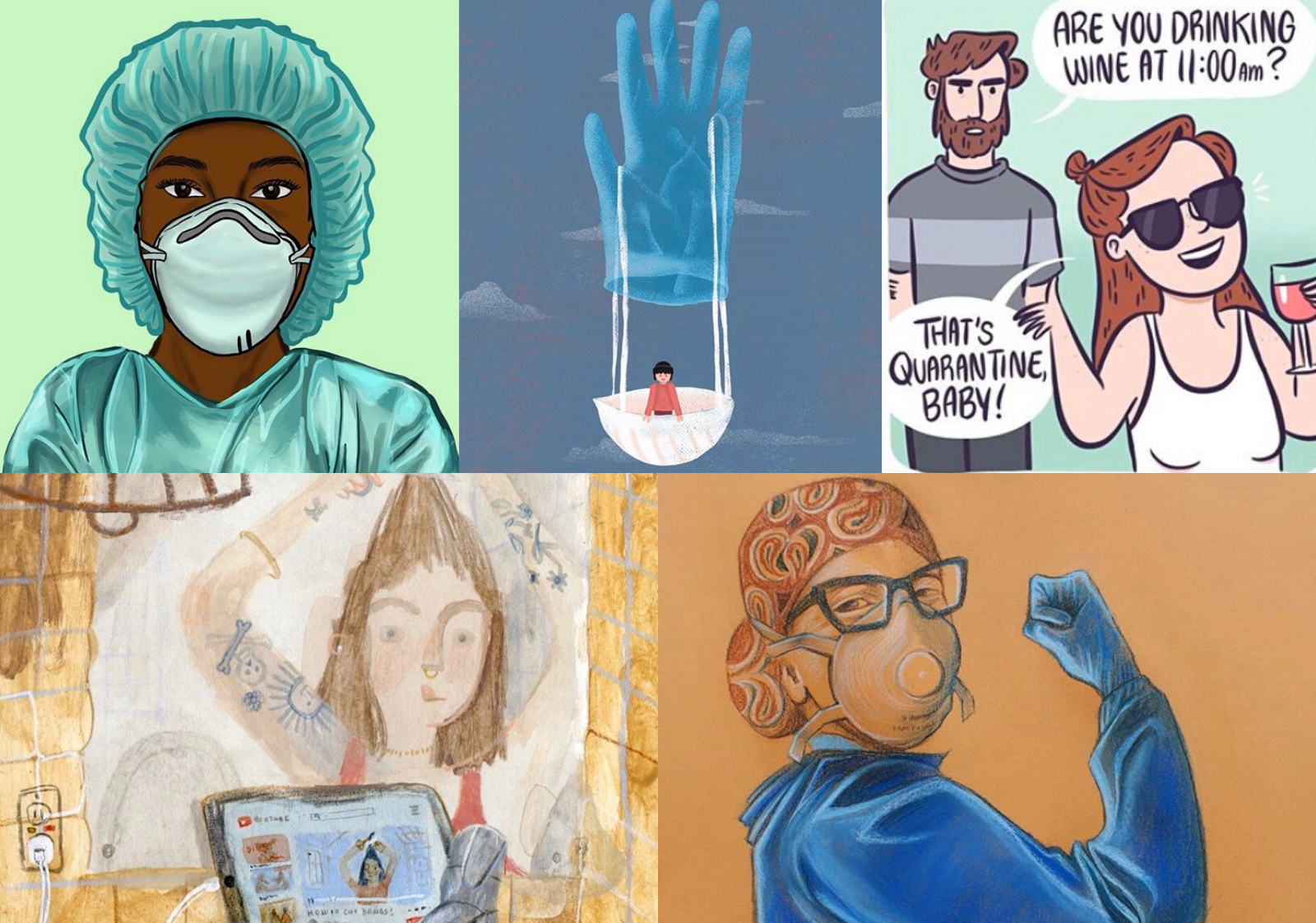Health professionals and federal agencies have expressed concern about the mental health effects of the global pandemic and social isolation. Mental health experts worry that there will be an uptick in stress-related disorders including depression, anxiety, substance abuse and post-traumatic stress disorder.
Though Congress is considering a bill to expand Medicare and Medicaid coverage of telehealth services from therapists and social workers in an attempt to begin tempering a possible mental-health crisis, mental health organizations still question the already-overwhelmed healthcare system’s capacity to aid Americans when the quarantine is over.
Healthcare and government officials alike warn that a mixture of social distancing, exposure to death-related trauma, unemployment and other factors are expected to contribute to an increase of mental-health disorders among Americans for many years to come.
In the meantime, viral social media posts point to feelings that many people share.
For example, not knowing what day it is:
Online classes are cool until you’re chilling on a Sunday then realize you had class an hour ago and it’s actually Tuesday
— Aluko (@AlukoCallender4) April 21, 2020
Or, the toils of trying to attend school from home:
sorry my paper was late professor i lost track of time and spent half of tuesday staring at the ceiling wondering if life even matters anymore
— rafia (@rafia_afzal_) April 16, 2020
And having to work alongside family members for the first time:
me and me dad are sharing the dining room table working from home today. He’s an aerospace engineer on a conference call ordering fuselage prototypes and I’m drawing a duck
— lydia ? (@lydiakahill) March 19, 2020
While hard data about the rates of mental illness during the pandemic are not yet available, there is plenty to suggest that people are looking for ways to cope with the excess of time that they are spending at home. According to Google Trends data, U.S. searches for the words “positivity,” “self-care,” “baking” and “painting” reached peak popularity in April.
There is scientific evidence that creating art has cognitive benefits. A growing body of research suggests that art therapy, or the practice of treating patients with mental health disorders with art-related activities, can reduce stress and anxiety as well as improve symptoms of neurological and age-related disorders such as dementia and Alzheimer’s.
Researchers have found that painting, drawing, sculpting and even scribbling have the ability to stimulate the centers in the brain related to pleasure and reward. Psychotherapists, hospitals and schools across the country have adopted art therapy methods with positive results.
The practice has also been used on non-cognitive disorders. Mayo Clinic’s Slaggie Family Cancer Education Center offers art therapy to its patients. “One of the reasons art therapy is helpful is because it can be used as a tool for self-expression and working through feelings; it is a way to convey emotions, hopes and concerns. While making art, the ‘creative corner’ of the brain takes over,” Megan Roessler, a staff member at the Slaggie Center, wrote in a blog post.
But if creating art is not your forte, similar benefits have been found for simply viewing art. Some researchers have found that browsing through an art gallery can help lower the body’s concentration of the stress hormone cortisol and increase that of the pleasure hormone dopamine.
While there may not be a way to physically access your favorite Smithsonian museum in the current climate, there is still plenty of art waiting to be viewed online. Some of the world’s most acclaimed museums are offering online access to some of their exhibits. The Louvre and the Vatican Museum have stunning virtual tours. Other museums, including the Met and the National Gallery, are allowing visitors to access interactive photo galleries.
In addition, the hashtags #covidart and #covidartmuseum have amassed more than 100,000 posts on Instagram. Artists from all over the world are connecting by sharing their creations via these hashtags. And you don’t have to scroll far to find a piece that’s relatable to what you may be going through.
Maybe you’re feeling thankful for our healthcare workers:
View this post on Instagram
View this post on Instagram
Or looking for a way to escape the confines of your home:
View this post on Instagram
Or reminiscing about that quarantine cut you’re already regretting:
View this post on Instagram
Or even laughing to keep from crying:
View this post on Instagram
So consider picking up a paintbrush or viewing someone else’s creations online. You may be surprised to find that art-related activities are effective stress relievers for you. Regardless, prolonged activation of the body’s stress system is harmful. There are countless other activities that have stress-relieving effects, including exercising and viewing nature. During this time, it is important to find ones that are effective for you.

